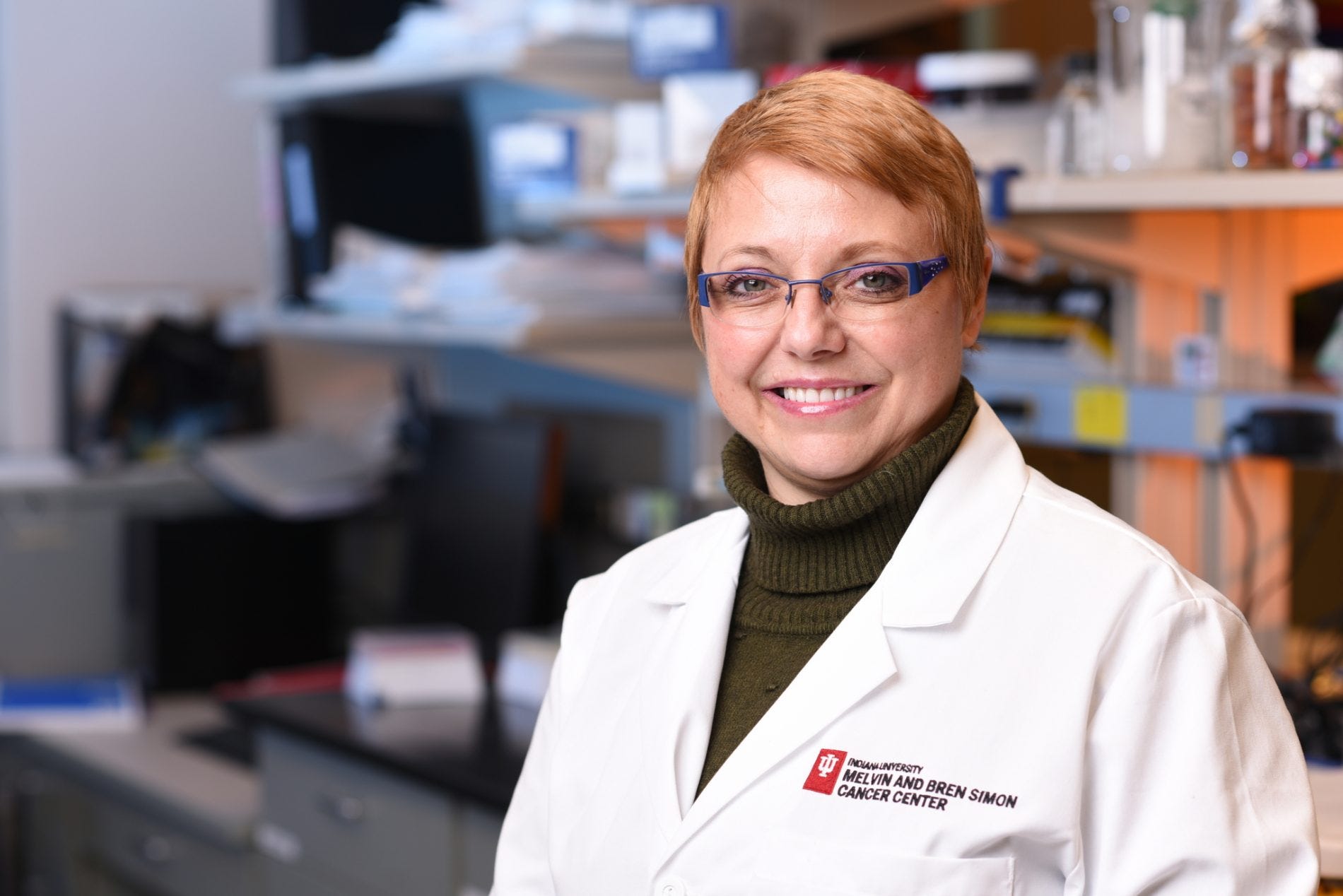$4.1M ‘Cancer Moonshot’ Grant Powers IU Researcher
 Paczesny is focusing on a method involving “checkpoint molecules.”
Paczesny is focusing on a method involving “checkpoint molecules.”
Subscriber Benefit
As a subscriber you can listen to articles at work, in the car, or while you work out. Subscribe NowImmunotherapy is described as a revolution, uncovering cures for a variety of cancers. Most of the progress has benefited adults battling the disease, but a recent $4.1 million Cancer Moonshot grant is helping a Hoosier researcher extend the power of immunotherapy to children and adolescents. While adult therapies were developed over decades, Dr. Sophie Paczesny believes her team’s research could unlock the promise of immunotherapy for young patients in just a matter of years.
Immunotherapy boosts a person’s own immune system to attack and destroy cancer cells, just as it would a bacteria or virus that enters the body. The body naturally creates immune system cells called T cells that attack foreign invaders, but tumors create barriers that prevent the T cells from attacking cancer cells.
Paczesny, a professor of pediatrics, microbiology and immunology at the Indiana University School of Medicine and a researcher at the IU Melvin and Bren Simon Cancer Center, is focusing on a method involving “checkpoint molecules.” These molecules block the immune system from attacking cancer cells; deactivating checkpoint molecules could allow T cells to attack and kill cancer cells.
“The molecule that we’ve discovered is ST2,” says Paczesny. “It’s an inhibitory molecule, and when we block it, we greatly increase T cells that will kill the cancer cells.”
Immunotherapy has had early success in adults because the antigens, or the proteins recognized by the T cells as foreigners, occur at a higher rate in adult patients; pediatric patients typically only have one mutation.
“[Developing immunotherapies for pediatric patients] is harder, yes, but this also means, eventually, you can target more cancer,” says Paczesny. “[ST2] is a general mechanism antigen, so you can target more and different types of cancer. In our case, we are interested in leukemia, but we think it will work with other cancers. We already have data showing it works with [adult] colon cancer, and we think it could work for sarcoma, other kinds of lymphoma and other types of cancer.”
Paczesny and her team are focusing on pediatric leukemia, because that’s her area of expertise. She focuses on stem cell transplants, which she describes as the best treatment for acute myeloid leukemia, but she’s confident the grant could uncover new treatments.
Paczesny says the National Cancer Institute’s $4.1 million Cancer Moonshot grant is “highly prestigious” and more powerful than a typical grant, because it places high priority on uniting experts. Paczesny is collaborating with Dr. Nai-Kong Cheung at Memorial Sloan Kettering, who has developed antibodies to treat neuroblastoma, which is most common in young children.
“Even if you have a collaborative grant, often, you don’t have this number of experts trying to achieve the same goal at the same time,” says Paczesny. “Collaboration is the best way to have different perspectives and feedback. We don’t always agree, but this is the best way to brainstorm and find new ideas. The NCI, specifically, was really keen about this; they want a group of experts that can argue with each other and find new ideas.”
Paczesny says the main objective of the large grant is to collect all of the pre-clinical data in the next five-to-six years to prepare for a clinical trial. The effort also fits within the IU Precision Health Initiative; immunotherapy is one pillar of the program, “and this is basically putting us on the map for immunotherapy,” says Paczesny.
“The timeline [of the grant] is the part I’m most excited about. I’m a physician scientist, so the goal for me is to deliver to the patient and help save lives,” says Paczesny. “We’re now within a five-to-six-year timeframe in which we can actually deliver something. It took 20 years to deliver the first immunotherapy; in pediatrics now, we can deliver something in five to six years.”
Paczesny says her strategy relies on a “checkpoint inhibitor,” a method that recently won the highest accolade in science.
Paczesny says the main focus of the Cancer Moonshot program is to create a network of the nation’s strongest experts.
